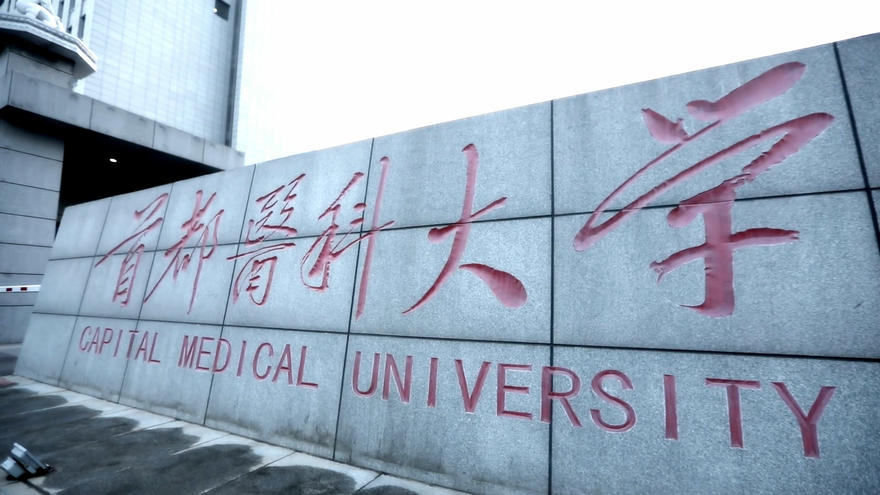
About This Course
Yunnan is a Province in southwest China, bordering Myanmar, Laos and Vietnam. The course aims to explain Yunnan tourism culture in English and help learners understand the features and implications of tourism culture in Yunnan, aiming to develop learners’ capability of international cross-culture communication. The course objective is to bridge Yunnan Province and the world.
Requirements of the Course
Learners of the course should have the basic English competence to understand teachers’ instruction. The course is suitable for those who are interested in tourism culture, or those who intend to do cross-culture programs and business. The course also fits international students interested in Chinese culture.
Introduction to the Course Team
The course team is composed of experienced teachers and experts who have been engaged in tourism culture studies and teaching for over 15 years. The following ones are team members:
Xu Wei (Director of Tourism Teaching Section of YNNU, MA): Her research interests focus on tourism culture.
Huang Ying ( Professor, PhD ): Her research interests focus on cross-culture communication.
Xiong Ying (Associate Professor, MA): Her research interests focus on translations for tourism culture.
Liu Xulin (Associate Professor, PhD): Her research interests focus on tourism anthropology.
Ma Na (PhD): Her research interests focus on human geography.
Course Staff:
 (Director of Tourism Teaching Section of YNNU; MA of Applied Linguistics, Latrobe University in Australia ): Mrs Xu has been working at the School of Foreign Languages and Literature of YNNU for over 20 years. She was awarded the first prize for three times in the English-speaking Tour Guides Contests at provincial level from 2002 to 2010. She was awarded the third prize in the National English-speaking Tour Guides Contest held by the State Council of China in 2010. She finished her visiting scholar program at UNCP in the USA in 2014. Her recent publications include three books: Tour-guiding in English for Colorful Yunnan (Yunnan University Press, 2010), Textbook for the Oral Test of English-speaking Tour Guides (Yunnan University Press, 2016), and Classics of Yunnan Ethnic Groups in English Translation: Chamu (Yunnan People’s Press, 2018) . One more book of her (The History Told by Cultural Relics of Yunnan) was published in 2022. She also published articles on learning strategies for tour-guiding in English. Her research interests focus on learning and teaching strategies for tour-guiding in English, folklore translation, and cross-cultural communication. She is in charge of the course Tourism Culture in Yunnan which has been recognized as the first batch of MOOC of Yunnan Normal University since 2019.
(Director of Tourism Teaching Section of YNNU; MA of Applied Linguistics, Latrobe University in Australia ): Mrs Xu has been working at the School of Foreign Languages and Literature of YNNU for over 20 years. She was awarded the first prize for three times in the English-speaking Tour Guides Contests at provincial level from 2002 to 2010. She was awarded the third prize in the National English-speaking Tour Guides Contest held by the State Council of China in 2010. She finished her visiting scholar program at UNCP in the USA in 2014. Her recent publications include three books: Tour-guiding in English for Colorful Yunnan (Yunnan University Press, 2010), Textbook for the Oral Test of English-speaking Tour Guides (Yunnan University Press, 2016), and Classics of Yunnan Ethnic Groups in English Translation: Chamu (Yunnan People’s Press, 2018) . One more book of her (The History Told by Cultural Relics of Yunnan) was published in 2022. She also published articles on learning strategies for tour-guiding in English. Her research interests focus on learning and teaching strategies for tour-guiding in English, folklore translation, and cross-cultural communication. She is in charge of the course Tourism Culture in Yunnan which has been recognized as the first batch of MOOC of Yunnan Normal University since 2019.
 (Professor; PhD of Education, Latrobe University in Australia): Mrs Huang has been teaching English for tourism at YNNU for over 30 years. She is the tutor for MA programs of translation and inter-cultural communication at YNNU. She is in charge of international exchange programs in YNNU. Her publications include textbooks of tourism majors, books about inter-cultural communication and more than 20 articles published at home and abroad.One of her books published in 2008 is the first one that makes studies on the inter-cultural communication in the setting of English-speaking tour guiding in China.
(Professor; PhD of Education, Latrobe University in Australia): Mrs Huang has been teaching English for tourism at YNNU for over 30 years. She is the tutor for MA programs of translation and inter-cultural communication at YNNU. She is in charge of international exchange programs in YNNU. Her publications include textbooks of tourism majors, books about inter-cultural communication and more than 20 articles published at home and abroad.One of her books published in 2008 is the first one that makes studies on the inter-cultural communication in the setting of English-speaking tour guiding in China.
 (Associate Professor; MA of Applied Linguistics, Latrobe University in Australia ): Mrs Xiong has been working at School of Foreign Languages and Literature of YNNU for over 20 years. She teaches students majoring in English for tourism. As a visiting scholar, she visited University of Toronto in Canada for one year and finished her program for studies on the Cultivation of Cross Cultural Awareness of Language Teachers. Her recent publications include three translations: Scenic Regions of Yunnan (Yunnan University Press,1999),Tour Guiding Yunnan in English (Tourism and Education Publishing House,2006), Unique cultural knowledge of Yunnan ethnic minorities (Yunnan University Press,2007), and more than ten articles on education and translation. Her research interests focus on translation, cultural education and cross-cultural communication.
(Associate Professor; MA of Applied Linguistics, Latrobe University in Australia ): Mrs Xiong has been working at School of Foreign Languages and Literature of YNNU for over 20 years. She teaches students majoring in English for tourism. As a visiting scholar, she visited University of Toronto in Canada for one year and finished her program for studies on the Cultivation of Cross Cultural Awareness of Language Teachers. Her recent publications include three translations: Scenic Regions of Yunnan (Yunnan University Press,1999),Tour Guiding Yunnan in English (Tourism and Education Publishing House,2006), Unique cultural knowledge of Yunnan ethnic minorities (Yunnan University Press,2007), and more than ten articles on education and translation. Her research interests focus on translation, cultural education and cross-cultural communication.
 (Associate Professor; PhD of Xiamen University) Mrs Liu has worked at School of Foreign Languages and Literature of YNNU for over 10 years. She teaches students majoring in English for tourism. She has got some academic papers and one book published since 2016. Two of them were selected for CSSCI (Chinese Social Science Citation Index). In 2017, her research on the exchange in economy between Myanmar and west China was financed by the National Social Sciences Fund of P.R.C. She participated the compilation of several textbooks. As the keynote speaker, she made speeches in the Tourism Summit Forum in 2016 and 2018. Her book about the anthropological research for Hushun Town in Yunnan was published by China Social Sciences Press in 2020.
(Associate Professor; PhD of Xiamen University) Mrs Liu has worked at School of Foreign Languages and Literature of YNNU for over 10 years. She teaches students majoring in English for tourism. She has got some academic papers and one book published since 2016. Two of them were selected for CSSCI (Chinese Social Science Citation Index). In 2017, her research on the exchange in economy between Myanmar and west China was financed by the National Social Sciences Fund of P.R.C. She participated the compilation of several textbooks. As the keynote speaker, she made speeches in the Tourism Summit Forum in 2016 and 2018. Her book about the anthropological research for Hushun Town in Yunnan was published by China Social Sciences Press in 2020.
Outline of the Course :
Chapter One (The Charming Yunnan):This chapter is composed of three sections. The origin of the name “Yunnan” is analyzed from the historic and cultural perspective. The basic facts of Yunnan is explained based on seven letters ATTRACT, which stand for seven aspects of Yunnan including administrative divisions, topography, transportation, nature reserves, abundant natural resources, climate and tourism development. Finally, the features of tourism culture in Yunnan are analyzed one by one.
Chapter Two (The Brilliant History of Yunnan): This chapter is composed of five sections. History is always the essential support for the tourism culture. Lots of tourism resources are kept in the form of historical relics. Based on chronological sequence, this chapter recalls the significant events in different historic periods of Yunnan. For instance, the Museum of Fauna Fossils in Maotian Mountain is the evidence to define Yunnan as the birthplace of early living beings. The Dinosaur Valley in Lufeng county displays the tourism culture of dinosaur theme park. Afterwards, the feature of each historic period of Yunnan is distinguished by one key word, and the corresponding resources of tourism are linked meanwhile.
Chapter Three (The Tourism Culture in Natural Landscapes): This chapter is composed of the most distinctive natural wonders in Yunnan. The formation of natural landscapes and their cultural implications are analyzed in details.
The Stone Forest as the World Natural Heritage Site: The Stone Forest is explained through four colors. Its cultural implication for tourism is analyzed from perspectives of formation, geological value, environment protection, and ethnic culture. The major concern is to discuss the ideology of low carbon ecological tourism in the Stone Forest.
Karst Caves in Jiuxiang : The course begins with the movie clip of Jacky Chen which was shot in Jiuxiang caves. The instruction explains the formation and characteristics of Karst wonders in Jiuxiang. The differences between Karst wonders on the ground and those of under the ground are distinguished.
The Holy Snow Mountains: Based on the representative snow mountains in Yunnan, the implications of tourism culture for snow mountains are analyzed.
Shangrila DNA: Three letters DNA are applied to distinguish characteristics of tourism culture in Shangrila. The value of alpine scenery in Shangrila is illustrated based on the standard of National Park.
The Miraculous Colorful Sand Forest: The features and formation of the Colorful Sand Forest are illustrated. The formation and features of local Cuan culture are discussed by tracing back to the history.
Fabulous Volcanoes: The formation of volcanic clusters in Tengchong county are introduced. The characteristics of volcanic resources for tourism are analyzed.
Geothermal Wonders: The hot spring cluster in Tengchong is taken as a case study to analyze the formation of geothermal resources in Yunnan and the hot spring healthcare tourism in Yunnan.
Spectacular Rivers: The section begins with a video clip from a movie about Mekong River. The video clip leads learners to understand the essential domestic and international rivers in the six river systems of Yunnan. Magnificent tourism resources of those rivers are explained and illustrated, including the World Natural Heritage Site Three Parallel Rivers, the Tiger-leaping Gorge and the Canyon of Nu River.
Precious Tropical Rainforest: This section begins with the news report of the large scale fire disaster in Amazon tropical rainforest in 2019. Based on the global rainforest context, Xishuangbanna tropical rainforest in Yunnan is analyzed through three letters: SOS. The characteristics of tourism culture in rainforest here are discussed based on botanical wonders as well as the cultural link between the rainforest and local Dai people. The significance of the rainforest for limiting the emission of carbon dioxide is discussed from the perspective of ecotourism.
Chapter Four (Ancient Towns in Yunnan): This chapter focuses on three ancient towns in Yunnan, including Lijiang, Dali and Heshun. Tourism culture in Lijiang ancient town is illustrated by three H words. Tourism culture in Dali ancient town is illustrated by three numbers. Tourism culture in Heshun ancient town is illustrated based on a key word “flowing”. Features of each ancient town are clearly explained.
Chapter Five (Ethnic Cultures in Yunnan): This chapter is composed of eight sections which introduces the basic facts of minorities in Yunnan and explains the causes for the diversity of ethnic groups here. Six representative ethnic groups in Yunnan (Yi people, Bai People, Hani people, Dai people, Naxi people and Jingpo people) are detailed from the following aspects: distribution, residential houses, religions, costumes and history. The significant role that ethnic cultures play in tourism is manifested. In addition, the cultural implication of traditional festivals (Torch Festival & Water-sprinkling Festival) of minorities are analyzed. The harmonious co-existence of diversified ethnic groups is the most impressive part in tourism culture in Yunnan.
Chapter Six( Local Delicacies in Yunnan): Local delicacies are also the carriers of tourism culture. This chapter helps learners to explore the cultural implications of the following local foods: Across the Bridge Rice Noodles, the Steam Pot Chicken, Pu’er Tea and Flower Cakes.
Chapter Seven (Stories of Famous People in Yunnan): This section introduces the stories and cultural attractions of fifteen famous people in Yunnan. The major concern is their contributions and achievements on various aspects of Yunnan such as cultural exchanges, democratic revolution, educational progress, economic development and artistic creations. Three famous people were historic figures in Ming Dynasty : Zhenghe (a great navigator) , Yang Shen’an (a well-known scholar) and Xu Xiake ( a well-known traveller) . Two were historic figures in Qing Dynasty : Sun Ran (the author of the longest couplet in China ) and Yuan Jiagu (the only Champion Scholar in the history of the Imperial Examination of Yunnan) . Six were the historic figures in the revolutionary period of Yunnan: Cai’e (a reputed general in the Movement of Guarding the Republic of China), Li Genyuan (a pioneer of the democratic revolution in Yunnan ), Ai Siqi (a famous philosopher), Luo Binhui (a reputed marshal of PLA), Wen Yiduo (a democracy fighter), Nie Er (the composer of the national anthem of P.R.C.). Three were well-known scholars in education: Chu Tunan (a famous scholar and calligrapher), Xiong Qinglai (a famous mathematician) and Cun Shusheng (a famous educator). The last one is the well-known ethnic dancer Yang Liping.
Chapter Eight (The International Tourism in Yunnan): The focus of this chapter is “the open Yunnan”. The international exhibition industry of Yunnan is a good perspective to show that Yunnan plays a significant role to connect China and southeast Asia through cultural exchanges in tourism.Cultural exchange is also the tie for cross-border business between China and southeast Asian countries.




